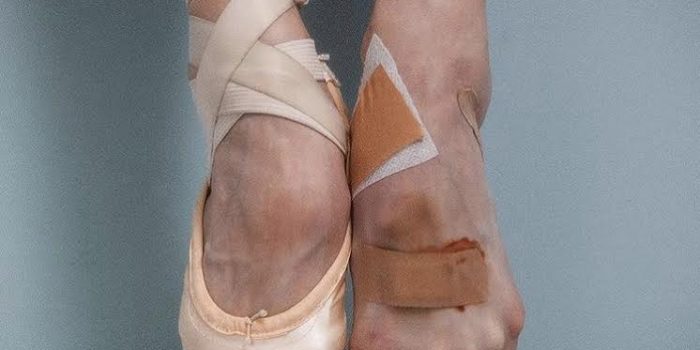Salt
Two weeks ago the fish became a diva and it’s been all downhill since. Not a big deal of a fish even. Just a Betta—a Siamese fighting fish with one color in a bowl and his color is red like real blood pouring fresh out of cuts and his fins are long and flowing and where they end the color becomes darker as if the blood has cooled.
He does not look so much pretty as he does angry, heated up, but you’d have to give him that too, with those fins. That he’s pretty. He flares them wide at me when I lean in to stare.
His bowl is traditionally round, like the goldfish bowls. Like you see in movies. When I stare through the width of it the bend of the glass blows him up to so many times his size and I can see each of his scales and his small hard eyes, staring back. He puffs his face like a Chinese dragon.
There is a dog too, and two rabbits. The rabbits are aging and now a mainstay and I’ve constructed a run outside where they mow down the lawn and when I walk towards them they rush me because I over-purchase produce at Whole Foods and without the pesticides and the additives plants without a root will die off quickly. The rabbits are old enough to know that when I see a food wilt I will bring it to them before the rot sets in.
I brought that first rabbit home when I was 22. Back then the big problem I saw downtown wasn’t the crack or the homeless or the needles sticking in the streets. It was the birdcages on the corners where the children sold the babies—kittens and puppies and kit. Bunnies two weeks old with their eye barely showing through the slit, little spurts of hair like a buzz cut. Dwarves! They cried. They’re all dwarves! And dumb mothers with grabby kids would buy it and buy the babies while they shopped for their bargains in the textile districts and near the flowers. Los Angeles Street electronics. Knock offs in booths that could be closed up and turned to nothing at the sign of a cop. But the babies weren’t dwarves. They were normal-sized things just two weeks old being passed off as eight weeks and three months. Then the dumb mothers would take them home and set some dry food out. The babies would mostly die without milk.
I got that first rabbit there, yelling at a kid with a birdcage, thirteen, fourteen years old. Maybe not a kid at all. Maybe older than me. But she looked young and determined and when I said two weeks she said eight and I said give them to me and she did. Twenty dollars. And then I was walking downtown with the birdcage and the rabbits panting in the sun and one was grey with cream on the undersides and first I held on to that one because I thought it would die and then I held on because it didn’t.
And that dog. That dog came on Valentine’s Day—just a blond damp-eyed puppy worming between us where we rested on some combined belief that a yellow lab was a sign of commitment and from there you get mortgages and speak in terms of “we” but the dog was the first step and the second would be hiking on the weekends: just the dog and we.
But the betta. That fish came that day with the rabbits because the other problem about downtown became that pet store. It was at Broadway and 8th and I went in with the birdcage looking for kitten milk and an eye droplet and a pet enthusiast who might sympathize. There were chickens sitting filthy in their cages and mice running over dead and dying mice and parrots with patches missing where they had picked clean their own dead and drying skin. I looked around and worked on the logistics of taking home the whole lot while a man rummaged for milk in the back. To my right was a stack of cups with bright rocks at the bottom holding varying levels of dirty water. The cup at the top had evaporated down to nearly no level at all. Inside a fish lay dead on its side.
The man came back to the front without milk.
I said, “You should take better care of your animals.”
He said, “What do you mean?”
“Your fish are dying, for one. Why don’t you change the water?”
He raised an eyebrow and leaned in and stared for a moment where I pointed at the dead one stacked in the cup at the top. He flicked the cup. The fish wriggled but stayed flat for lack of water to right itself.
“The fish is fine.”
He walked off.
And then so did I, with the fish.
The dog is now nearly a year old and the rabbits are five and the fish is some age past five that is indeterminable. The dog is old enough now to jump on counters and take our food. Big enough. Her will is forceful and she gets what she is after. Two weeks ago it was the fish’s food.
We were out of town. It was three days before we were back that the food went missing and there were big plans for someone to buy more but the long and short of it is nothing got done until we were back. I went to the pet store—one of those big chains where they do adoption rallies on weekends and all of their fish tanks are clean. The thing about betta food is the least you can buy is a year’s supply for your single fish. The food comes in containers holding ten and twenty fold the weight of the fish. Which is to say, still not much. These fish are small. But it had been a while since I’d last done a grocery run for Marshall IV, whose name only became apparent, by the way, a few years past his first night home. All of my betta fish have been named and numbered by the order in which I began to call them Marshall.
The brand of fish food was discontinued or run out of stock or repackaged and relabeled. I couldn’t find it. Without much thought I grabbed a different brand. An off brand, maybe. The fish hadn’t eaten in three days.
And he wouldn’t eat on the fourth day, or the fifth. By the sixth day the dog had gotten to that food too and I went to a new store—progressive, boutique-y, potentially in-stock of the yellow food with the red fish picture on the front which I was now convinced was the only food Marshall would have. They didn’t have it, but I grabbed the three brands they did have. Now there were flakes and there were pellets and dried brine. Marshall had none of it.
A few more days and the tank grew dirty with the buildup of the uneaten food. I cleaned it. I leaned in and looked at him for answers and he didn’t flare up at me like a Chinese dragon and he didn’t dart around like I was an invader and I made another run for this fish food brand that I couldn’t find and I didn’t find it. The dog ate the three new brands. I cursed them both, and the pet stores.
The next day under the magnification of his bowl I noticed Marshall had a tumor. A pustule maybe. Something of a growth or a bubble. The thing was a deep black bulb that had seemingly materialized under the fins that would be animated as arms if we turned the life and times of Marshall into a cartoon. A children’s book. The bulb had not been there yesterday, I was sure.
I looked up fish cancer.
The search turned me off to fish oil pills but otherwise yielded little. We haven’t expended much energy in the prevention and treatment of malignant growths on the betta body. Not even much on the diagnosis of such.
And by that night I wasn’t much concerned with the tumor either because it had burst and where it had been there was nothing more than a hole in the barrel of him. Little strings hung out and a film clouded around it and his scales stood up like the raised hair on a cornered dog’s back. His color had lightened to something less like what you’d see in a body. I turned the bowl to get a closer look and he saw me and looked back.
Google also failed to yield much on the treatment and prevention of cavernous holes.
There are stages Kubler-Ross has missed. One is realizing exactly how attached you’ve become to the dying thing in the first place. Or maybe I’m doing this wrong. Because the denial and the anger and the bargaining is not there. Or maybe a fish just isn’t important enough to warrant these things. Or maybe at the moment your fish sprouts a growth a tenth of his size that subsequently bursts and leaves a crater it doesn’t take much of a leap to jump to the conclusion of what’s coming.
And what would you call the stage where you lean in and hope that the eyes don’t look back? We cycled through the things you could do to a thing that size that would take him out quicker and spare the drawl. The old toilet flush isn’t quick. It is toxic and slow. There was a suggestion to squish him but it seemed too much, the trauma of even getting him to a place you could do that against. I thought of the garbage disposal but I couldn’t. Nothing feels decent. Another day passed and he stayed like that, barely moving. I still put pellets in the water.
A couple more days and his color is now closer to something like skin. He hangs on. Sometimes he tilts and I think that’s it and I say my goodbyes and I’m relieved and then he will right himself again and I’ll put pellets in the water. I keep checking under the magnification of the bowl to see if the hole has closed. To see if maybe everything I know about bodies might be wrong, that sometimes a thing can go for two weeks without food and its stomach can burst through its ribs and the body can change colors but then in a few more days the symptoms can sometimes clear up and just as soon as the stomach grows back so too will the appetite and it’s not much longer after that before the color is good and the body that is already at the end of a lifespan can sometimes recover so fully that the clock starts all over again. Sometimes.
So maybe this is denial.
Today I thought I would just string some metal between the bowl and a toaster and plug it in. Manuel stopped me. He said, “let it go.”
I am trying to, on an accelerated schedule.
Acceptance.
But then I tried to slow it down and put some salt in the tank because a forum said it might draw out the swelling. I left the salt where the fish food used to be left. The dog ate the salt.
And the last of the pellets.
And I’m bringing extra carrots to the rabbits and checking their fur and it is shiny and smooth and their eyes are bright and their water is always fresh and I’m afraid to feed them food from a bag and when I can feed them things that have come straight up out of the land. The dog is eating carrots too.
And I thought maybe if I dumped the fish in boiling water it could just be done with.
But then I can’t again and the fish is lingering near the top with his mouth at the surface and he opens it here and there and I think he wants food so I bought some more in another brand but really he’s just breathing and then he stops and he’s as still as the water and then he blinks. I check the hole for improvement.
How does one kindly kill a fish?
This is the thing that’s been getting me though—through it all I have been constantly thinking of this—my grandpa hanging on that way he did. My grandma kicking loose. And as she grew smaller he pushed her through the garlic pills and the cleanses and the hot springs and the miracles and the machine from Japan that would shake her desperately until her eyes went wide and scared and there were the strings of doctors recommending their string of things that would balance just one part of her body and so undo everything. There was the research unrelenting. The gluten-free and the sugar-free and trace-metal free foods. There was fluoride in the water and it was at fault. The electrical lines were. Some flu she’d had when she was twenty—it had done something. And so there was the chamber he spent fifteen grand on that she should sit in until she was well. There was the acupuncture and the ionic foot spas. Humidity and exercises. Prayer. Then there were the theories on why she wasn’t well yet, each of them in opposition to the accepted ideas on a disease widely known and known to be terminal. And then finally it was the final stage that she was now working through by the book—working through perfectly as if she were reading a list and checking the symptoms off, a model patient for such a thing. She came in right on schedule. And he added a little salt to her water to draw out the bad and sat back and he waited.




